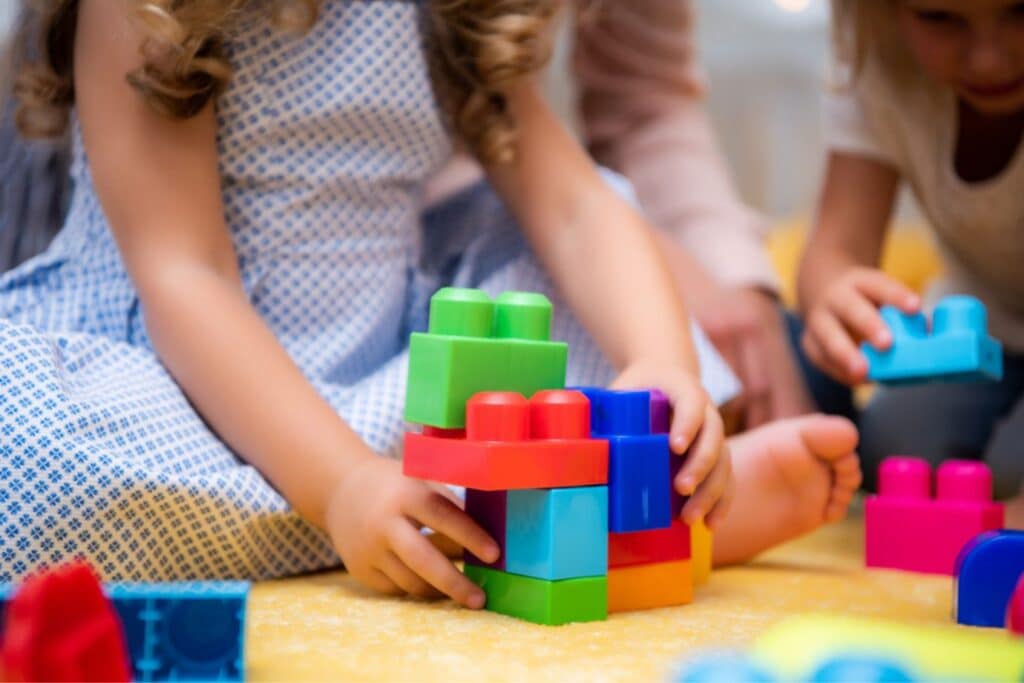More than half of children in Australia say they are made fun of for playing with toys traditionally associated with the opposite gender, a study has found.
The results come from the LEGO Group’s Play Well study, a survey conducted in 2022 with more than 32,000 parents and around 25,000 children aged 5-12.
Although 83 per cent of children believe all kids like playing with the same toys, the majority are teased for playing with toys that aren’t traditionally designed for their gender.
Three out of five boys (61 per cent) are made fun of if they play with “girl” toys, and 50 per cent of girls are made fun of if they play with “boy” toys.
Senior director and head of marketing at LEGO (ANZ) Angie Tutt said societal values are still behind and are affecting children in play, development and learning.
“The LEGO Group believes that play helps children develop confidence, creativity and communication skills,” she said.
“Yet unfortunately, led by society, the activities we encourage our children to get involved in are still hindered by gender-based stereotypes.”
Dr Remy Low, a senior lecturer in education studies at the University of Sydney, said by three years old, most children have a strong concept of gender identity because of cultural exposure and social interactions. By five years old, it’s even stronger.
“So it’s not super surprising to me that a lot of gender-based bullying starts happening around that age group as well,” he said.
“It’s the predominant form of bullying in schools at any age group. Around 80 per cent of bullying involves some sort of gender dimension. So this is a big issue.”
Forming gendered habits through play
Gendered toys and exposure to gendered stereotypes at a young age could also impact children later in their lives.
Dr Low said although there is no direct causal relationship between play as a child and how a person behaves later in life, or the career they chose as an adult, toys and play at a young age creates “habits” for children which they may carry through into their adult years.
“For young people, it inclines them to participate in certain cultural patterns that we see more broadly,” he said.
“Then those habits become you. They become literally in your body – the way you hold yourself, the way you carry your body, the way you behave.
“And then it starts to feel natural, because in a way, it kind of becomes written into your nature.”
Diversity, equity and inclusion conversations for young children
How a person behaves in their adult years isn’t just formed through play and education – it can also come from how their parents and caregivers raised them and the types of conversations they had as children.
In LEGO’s survey, 88 per cent of parents said their child can do whatever job they want in the future. However, dads were more likely to encourage their children into the science, technology, engineering and mathematics (STEM) industry (78 per cent) than mothers.
Almost all parents who responded to the survey (97 per cent) said it’s important to discuss topics related to diversity, equity and inclusion (DE&I). However, only 64 per cent believe parents should talk about gender identity.
Over half of the parents said they feel uncomfortable discussing sexual orientation (62 per cent) and gender identity (56 per cent) with their kids.
The LEGO Play Well study also found one in two parents were not allowed to play with toys traditionally associated with the opposite gender when they were children. This was more prominent for fathers (58 per cent) than mothers (42 per cent).
Angie Tutt from LEGO said conversations around DE&I are crucial for children in the foundational years of their lives.
“While DE&I topics may be complicated to navigate, we know that play can spark a child’s curiosity and can be a great first step into more complex conversations,” she said.
“This provides an opportunity for parents and guardians to engage with their children during these foundational years, educate them, and allow children to develop their understanding of the wider world around them through play.”
Dr Low from the University of Sydney said while parents, caregivers and educators should start and be open to DE&I conversations, they should also consider more creative, imaginative and malleable toys, like LEGO, Play Dough and painting.
“It allows the child to express diversity and imagination… with things that aren’t necessarily gendered, so they child can explore and express their individuality in ways that don’t lock them into a gender,” he said.


